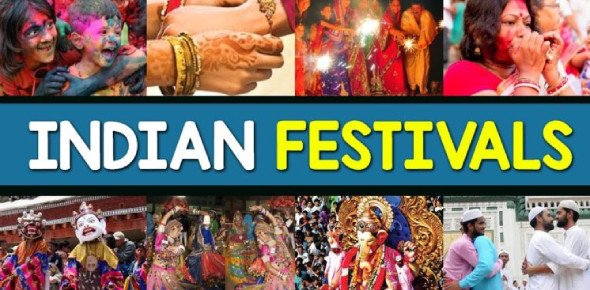Maintaining health and wellnes...
1. Nutrition Balanced Diet: Eat a variety of foods, including fruits, vegetables, lean proteins, wh...

Diwali (Deepavali)
Timing: October/November
Significance: Known as the Festival of Lights, Diwali symbolizes the victory of light over darkness and good over evil.
Celebrations: Includes lighting lamps, bursting fireworks, exchanging sweets, and performing rituals.
Holi
Timing: March
Significance: The Festival of Colors celebrates the arrival of spring and the victory of good over evil.
Celebrations: People throw colored powders, water balloons, and engage in dancing and singing.
Navratri/Dussehra
Timing: September/October
Significance: A festival dedicated to the worship of the Hindu goddess Durga, marking her victory over the demon Mahishasura.
Celebrations: Includes fasting, dancing (Garba/Dandiya), and worship ceremonies. Dussehra, the final day, celebrates the victory of Rama over Ravana.
Eid al-Fitr
Timing: Varies based on the Islamic lunar calendar
Significance: Marks the end of Ramadan, a month of fasting.
Celebrations: Includes communal prayers, feasting, giving charity (Zakat), and visiting family and friends.
Ganesh Chaturthi
Timing: August/September
Significance: Celebrates the birth of Lord Ganesha, the elephant-headed god of wisdom and prosperity.
Celebrations: Involves installing Ganesha idols in homes and public places, performing prayers, and immersing the idols in water at the end of the festival.
Pongal
Timing: January
Significance: A harvest festival celebrated mainly in Tamil Nadu.
Celebrations: Includes cooking a special dish called Pongal, decorating homes, and participating in various cultural activities.
Durga Puja
Timing: September/October
Significance: Celebrates the goddess Durga’s victory over the buffalo demon Mahishasura.
Celebrations: Includes elaborate decorations, processions, cultural performances, and rituals, especially in West Bengal.
Raksha Bandhan
Timing: August
Significance: Celebrates the bond between brothers and sisters.
Celebrations: Sisters tie a protective thread (rakhi) around their brothers’ wrists, and brothers give gifts in return.
Cuisine
Music and Dance
Art and Craft
Religion and Philosophy
Festive Traditions
Understanding these aspects provides a glimpse into the vibrant and diverse nature of Indian culture and its festivals. If you have specific questions or need details on a particular festival or cultural practice
1. Nutrition Balanced Diet: Eat a variety of foods, including fruits, vegetables, lean proteins, wh...
Booking sports slots, whether for individual play, team sports, or facilities, involves ...
